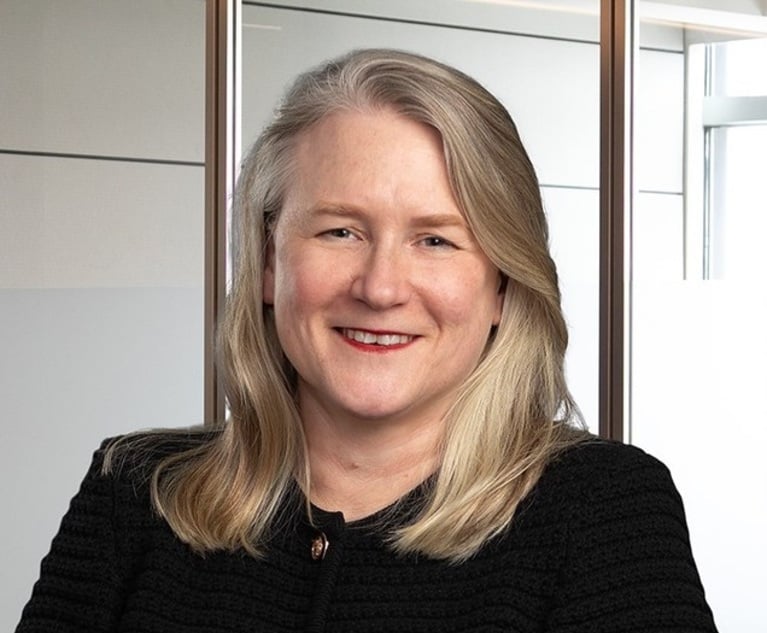Europe's top court rejects case for in-house privilege
The battle to extend privilege for in-house lawyers in Europe has suffered a major blow after a ruling from the European Court of Justice (ECJ) today (14 September) stated that company legal teams are not protected in competition cases. The ECJ rejected arguments made by Dutch chemicals group Akzo Nobel that a lower court was wrong to find that communications involving in-house legal counsel are not covered by lawyer-client confidentiality.
September 14, 2010 at 08:50 AM
3 minute read
The battle to extend privilege for in-house lawyers in Europe has suffered a major blow after a ruling from the European Court of Justice (ECJ) today (14 September) stated that company legal teams are not protected in competition cases.
The ECJ rejected arguments made by Dutch chemicals group Akzo Nobel that a lower court was wrong to find that communications involving in-house legal counsel are not covered by lawyer-client confidentiality.
The long-running legal battle, which was supported by the Law Society of England and Wales and a number of European legal groups, has sparked controversy in the legal sector. The decision will be strongly opposed by in-house lawyers, which have long resented the lack of full professional privilege they face in some European countries.
The judgment follows a 2007 ruling handed down by EU's General Court and a preliminary opinion earlier this year by ECJ Advocate General Juliane Kokott, which both rejected the case for extending privilege.
Stephenson Harwood competition partner Julianne O'Leary (pictured) commented: "Unfortunately, the decision reinforces the view that the EU and its institutions are out-of-touch with the reality of day-to-day commercial life and a genuine desire of in-house counsel and business to be legally compliant.
"By handicapping in-house lawyers from having full freedom to have open and frank exchanges with their internal clients the current EU position is counterproductive."
The conflict arose during a 2003 European Commission onsite investigation seeking evidence of anti-competitive practices at Akzo Nobel's UK offices in Manchester. The Commission's search led to disagreements about whether it could copy five documents that Akzo Nobel claimed were covered by lawyer-client privilege.
Association of Corporate Counsel general counsel Susan Hackett said:"We are dismayed that the ECJ did not seize the opportunity to recognise the independent judgment and value of the in-house profession.
"The idea that professional independence stems from the type of office a lawyer works in, rather than from their moral and professional compass, evidences a deep misunderstanding of legal professionalism and lawyers."
Pannone head of dispute resolution Paul Jonson said: "Today's ruling is the end of the road for Akzo Nobel's endeavour to secure for in-house lawyers the same rights to privilege as external lawyers.
"There may be also renewed concerns that where regulation develops in other areas, such as bribery and money laundering, if EU law applies to any investigatory powers in question the extent to which privilege can be relied upon could also be restricted."
Law Society chief executive Des Hudson said: "In-house lawyers are the front-line guarantor of compliance. It is sad that while the EU strives to legislate for higher standards of corporate governance and risk management, the decision of the Court in effect rejects this key tool in achieving this aim."
Click here to view the ECJ ruling.
Related Legal Week Law briefing: ECJ confirms privilege does not apply to in-house lawyers under EU competition law
This content has been archived. It is available through our partners, LexisNexis® and Bloomberg Law.
To view this content, please continue to their sites.
Not a Lexis Subscriber?
Subscribe Now
Not a Bloomberg Law Subscriber?
Subscribe Now
NOT FOR REPRINT
© 2025 ALM Global, LLC, All Rights Reserved. Request academic re-use from www.copyright.com. All other uses, submit a request to [email protected]. For more information visit Asset & Logo Licensing.
You Might Like
View All
Perkins Coie Builds in London With Ex-Norton Rose Fulbright Brussels Head
2 minute read
Combative Arguments at EU's Highest Court Over Google's €4.13B Antitrust Fine Emphasize High Stakes and Invoke Trump
4 minute read
‘Raises More Questions Than Answers’: Partners Puzzled by Leadership Change at UK Competition Regulator

CMA Uses New Competition Powers to Investigate Google Over Search Advertising
Trending Stories
- 1We Must Uphold the Rights of Immigrant Students
- 2Orrick Picks Up 13-Lawyer Tech, VC Group From Gunderson Dettmer
- 3How Alzheimer’s and Other Cognitive Diseases Affect Guardianship, POAs and Estate Planning
- 4How Lower Courts Are Interpreting Justices' Decision in 'Muldrow v. City of St. Louis'
- 5Phantom Income/Retained Earnings and the Potential for Inflated Support
Who Got The Work
J. Brugh Lower of Gibbons has entered an appearance for industrial equipment supplier Devco Corporation in a pending trademark infringement lawsuit. The suit, accusing the defendant of selling knock-off Graco products, was filed Dec. 18 in New Jersey District Court by Rivkin Radler on behalf of Graco Inc. and Graco Minnesota. The case, assigned to U.S. District Judge Zahid N. Quraishi, is 3:24-cv-11294, Graco Inc. et al v. Devco Corporation.
Who Got The Work
Rebecca Maller-Stein and Kent A. Yalowitz of Arnold & Porter Kaye Scholer have entered their appearances for Hanaco Venture Capital and its executives, Lior Prosor and David Frankel, in a pending securities lawsuit. The action, filed on Dec. 24 in New York Southern District Court by Zell, Aron & Co. on behalf of Goldeneye Advisors, accuses the defendants of negligently and fraudulently managing the plaintiff's $1 million investment. The case, assigned to U.S. District Judge Vernon S. Broderick, is 1:24-cv-09918, Goldeneye Advisors, LLC v. Hanaco Venture Capital, Ltd. et al.
Who Got The Work
Attorneys from A&O Shearman has stepped in as defense counsel for Toronto-Dominion Bank and other defendants in a pending securities class action. The suit, filed Dec. 11 in New York Southern District Court by Bleichmar Fonti & Auld, accuses the defendants of concealing the bank's 'pervasive' deficiencies in regards to its compliance with the Bank Secrecy Act and the quality of its anti-money laundering controls. The case, assigned to U.S. District Judge Arun Subramanian, is 1:24-cv-09445, Gonzalez v. The Toronto-Dominion Bank et al.
Who Got The Work
Crown Castle International, a Pennsylvania company providing shared communications infrastructure, has turned to Luke D. Wolf of Gordon Rees Scully Mansukhani to fend off a pending breach-of-contract lawsuit. The court action, filed Nov. 25 in Michigan Eastern District Court by Hooper Hathaway PC on behalf of The Town Residences LLC, accuses Crown Castle of failing to transfer approximately $30,000 in utility payments from T-Mobile in breach of a roof-top lease and assignment agreement. The case, assigned to U.S. District Judge Susan K. Declercq, is 2:24-cv-13131, The Town Residences LLC v. T-Mobile US, Inc. et al.
Who Got The Work
Wilfred P. Coronato and Daniel M. Schwartz of McCarter & English have stepped in as defense counsel to Electrolux Home Products Inc. in a pending product liability lawsuit. The court action, filed Nov. 26 in New York Eastern District Court by Poulos Lopiccolo PC and Nagel Rice LLP on behalf of David Stern, alleges that the defendant's refrigerators’ drawers and shelving repeatedly break and fall apart within months after purchase. The case, assigned to U.S. District Judge Joan M. Azrack, is 2:24-cv-08204, Stern v. Electrolux Home Products, Inc.
Featured Firms
Law Offices of Gary Martin Hays & Associates, P.C.
(470) 294-1674
Law Offices of Mark E. Salomone
(857) 444-6468
Smith & Hassler
(713) 739-1250








